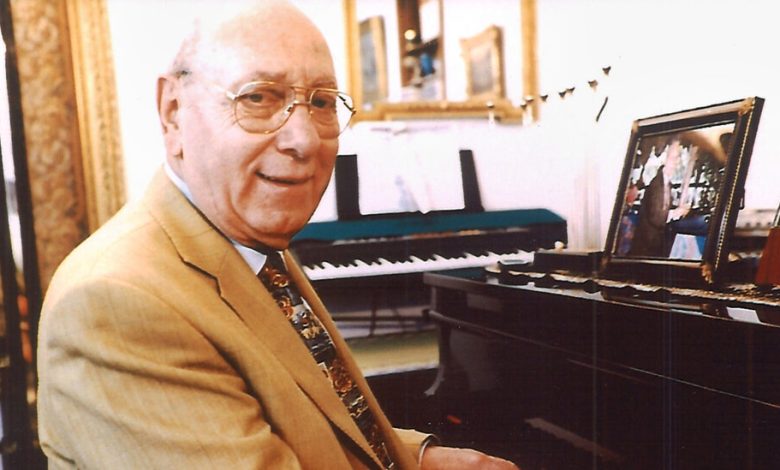Maurice El Medioni, Jewish Algerian Pianist, Dies at 95

Maurice El Medioni, an Algerian pianist who fused Jewish and Arab musical traditions into a singular style he called “Pianoriental,” died on March 25 in Israel. He was 95.
His death, at a nursing home in Herzliya, on Israel’s central coast, was confirmed by his manager, Yvonne Kahan.
Mr. Medioni was a last representative of a once vibrant Jewish-Arab musical culture that flourished in North Africa before and after World War II and proudly drew from both heritages.
In Oran, the Algerian port where he was born, he was sought after by Arabs and Jews alike to play at weddings and at banquets, in the years between the war and 1961, when the threat of violence and Algeria’s new independence from France drove Mr. Medioni and thousands of other Jews to flee.
With his bounding octaves, his quasi-microtonal shifts in the style of traditional Arab music, his cheeky rumba rhythms learned from American G.I.s after the 1942 Allied invasion and his roots in the Jewish-Arab musical heritage called andalous, Mr. Medioni had honed a distinctive piano style by his early 20s. The singers he accompanied often alternated phrases in French and Arabic in a style known as “Françarabe.” His uncle Messaoud El Medioni was the famous musician known as Saoud L’Oranais, a leading practitioner of andalous who was deported by the Germans to the Sobibor death camp in 1943.
The Medioni style remained buried and nearly forgotten for four decades as he pursued his trade as a men’s tailor. He kept it alive in private, performing at weddings and bar mitzvahs after he was forced to flee to France, until he released a breakthrough album, “Café Oran,” in 1996 at the age of 68. That led to a belated second life as a star of so-called world music — concert tours in Europe, appearances in documentary films and a major role as mentor to a new generation of Israeli musicians anxious to recover the musical heritage of their Sephardic heritage. In 2017, he published an autobiography, “A Memoir: From Oran to Marseilles (1938-1992),” which reproduces Mr. Medioni’s cursive scrawl, with a translation from the French.
